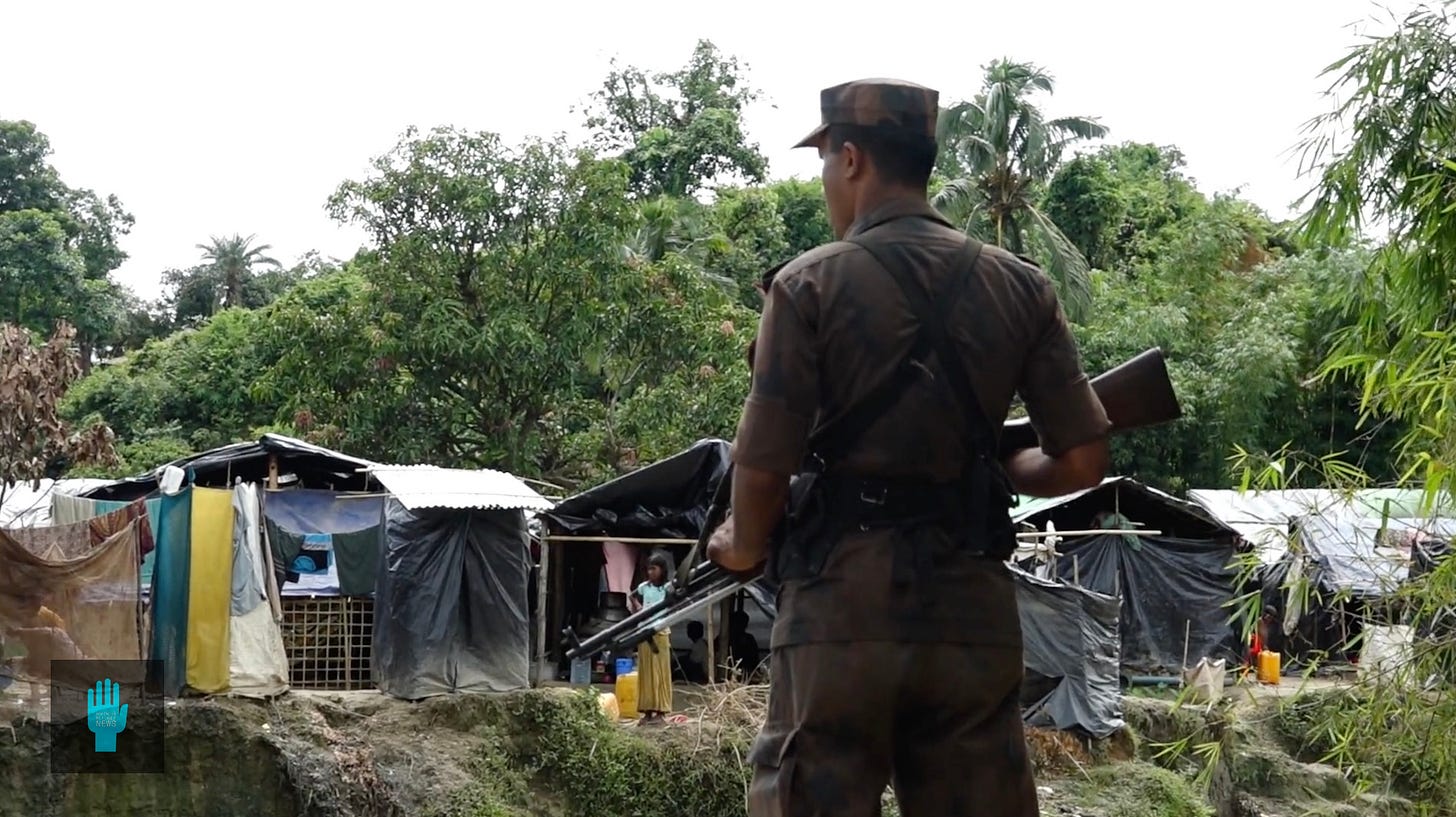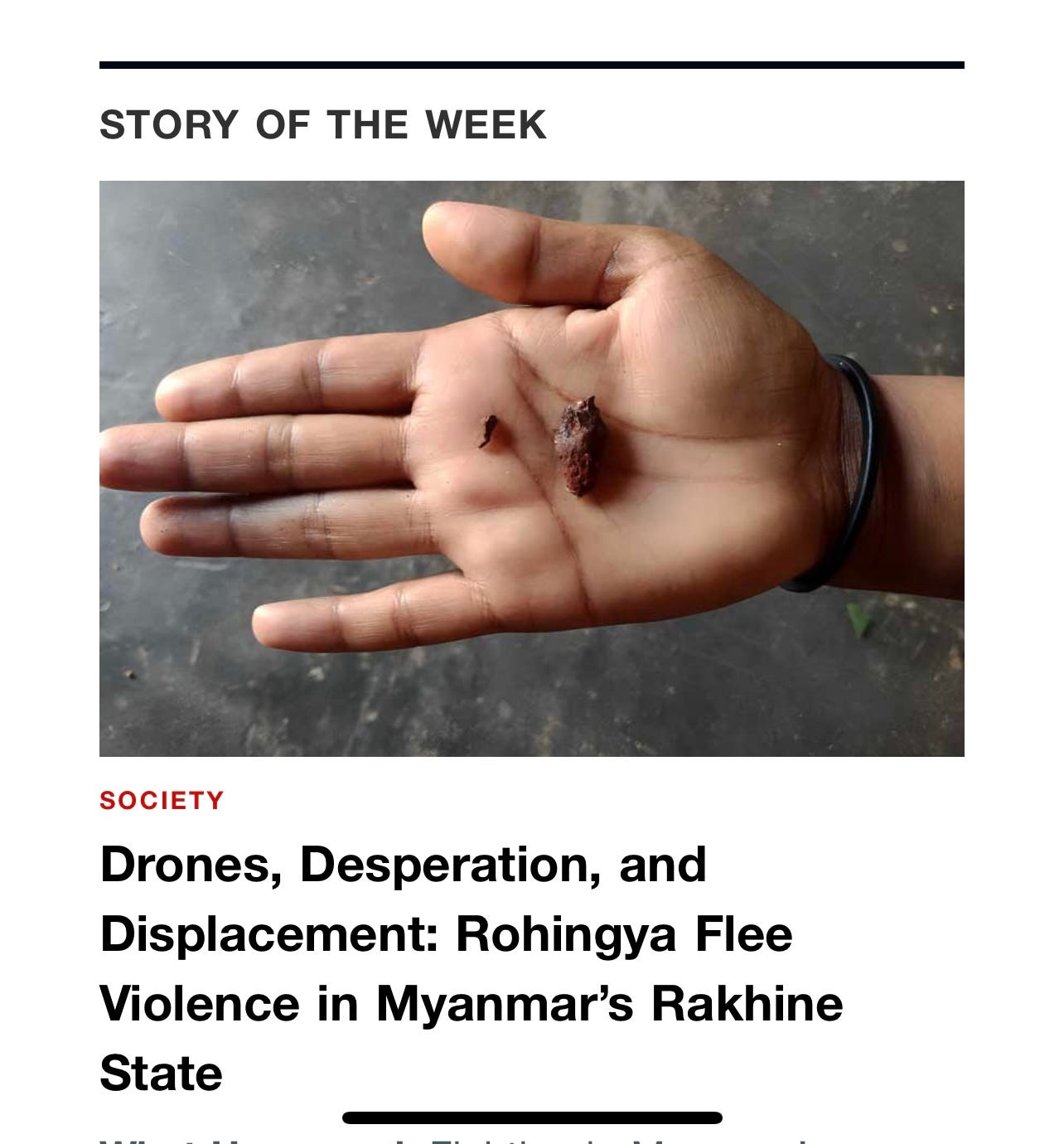Putting Faces to the Numbers
From Bombs to Border Camps, Rohingya Women’s Harrowing Journeys
Too often, the plight of the Rohingya is reduced to numbers in media coverage. Statistics on displacement, death tolls, or migration flows dominate headlines, while the personal trauma endured by individuals is overlooked. My latest piece in The Diplomat seeks to counter this trend by focusing on two women, Humaira and Salma Bibi, whose stories lay bare the human cost of the Rohingya crisis.
Humaira and Salma are survivors of unimaginable hardship. Their journeys from Myanmar to Bangladesh were marked by drone bombings, betrayal by brokers, and the loss of loved ones. Humaira’s nine-year-old son was killed in an attack at Zailla Dia (Jaliardwip), while Salma’s husband, Dil Mohammed, died from injuries sustained during the same assault. Both women bear physical and emotional scars, and they are struggling to rebuild their lives in the camps in Bangladesh.
Their stories underline the brutality of a system that offers no safe refuge. While the Rohingya flee violence and persecution, they face further indignities at the border. The Border Guard Bangladesh (BGB) has been documented engaging in pushbacks, a practice condemned even by some within the Bangladeshi government. One government adviser recently acknowledged the inhumanity of these actions, yet they persist. The consequences for those turned away = often back into the arms of violence or exploitation = are devastating.
Humaira and Salma’s experiences challenge us to rethink how we report and respond to their plight. Their names and faces remind us that the crisis is not a statistic. It is a humanitarian catastrophe with a deeply personal toll.
UPDATE: Honoured that my article has been named The Diplomat’s Story of the Week.



This is a HUMAN tragedy. Thank you for bringing the humans into the discussion.